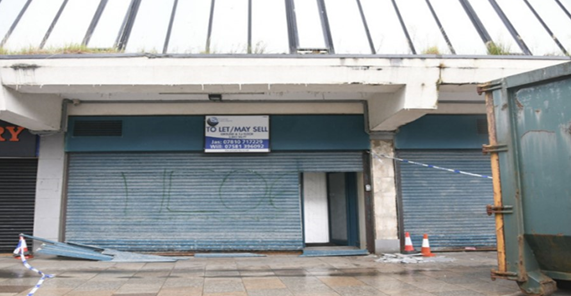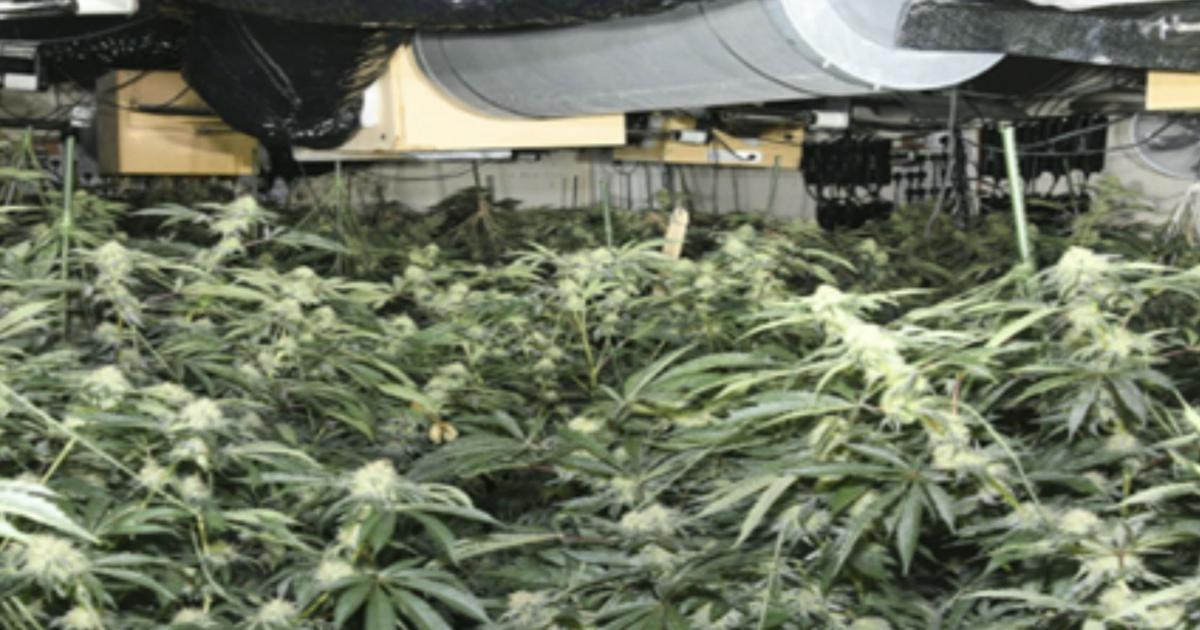Elton Skenderi, 29, Gjovalin Toma, 31, and Eduard Daja, 39, were all arrested while attempting to “flood” central Scotland with the class B drug, which they were cultivating in the former Irvine Forum shopping centre in North Ayrshire.
During a raid in September 2024, police found 3,058 cannabis plants in the site, with an estimated value of between £600,000 and £1.8 million.
At the High Court in Glasgow on Wednesday, Judge Lord Mulholland told them: “I don’t think I have ever seen so many cannabis plants in one place.”
All three men pleaded guilty to offences under the Misuse of Drugs Act at the same court on August 6.
 A judge said three men were responsible for ‘industrial scale’ cannabis production inside the former shopping centre (COPFS/PA)
A judge said three men were responsible for ‘industrial scale’ cannabis production inside the former shopping centre (COPFS/PA)
Daja also pleaded guilty to breaching a deportation order, which had been imposed in July 2023 following an earlier conviction for cannabis production at Leeds Crown Court.
During the sentencing on Wednesday, Lord Mulholland told the men they had engaged in “criminality on an industrial scale”.
Addressing them through Albanian interpreters, he added: “This was not a small-scale operation.
“You were running a cannabis factory to flood central Scotland with cannabis.
“I have been in the law for over 40 years and I have never seen a cannabis farm as extensive as the one in this case.
“You have all come here to receive the benefits available from living in the United Kingdom and this is how you treat this country.”
Addressing Daja, he said: “You should not have been in this country, given that you had been deported following serving a sentence for your conviction for cannabis production at Leeds Crown Court.”
The judge also dismissed the idea the men had been the victims of human trafficking or modern slavery.
“You are not in any way victims of human trafficking or human slavery,” he told them.
“You are all cannabis farmers, pure and simple.”
Earlier, Laura Ann Radcliffe, representing Skenderi, told the court her client had come to the UK after meeting a “group of men” while living in Germany who had promised him work in Britain.
Once there, she said, he found himself in “debt” to the men, and was taken to Irvine and told to “take care of the cannabis plantation” as a means of repaying it.
“He found himself in a hopeless situation, he felt it was his only option and he felt it was the only way he could pay off his debt,” she said.
However the judge pointed out there was “no evidence” he had been the victim of human trafficking or modern slavery, with which Ms Radcliffe agreed.
Skenderi was sentenced to five years and three months in jail, and Toma to six years.
 The farm was located in the disused Irvine Forum (COPFS/PA)
The farm was located in the disused Irvine Forum (COPFS/PA)
Daja was sentenced to six years for his part in the cannabis cultivation, and a further nine months for breaching a deportation order, with the two sentences to be served consecutively.
The three men, who were all present in court dressed in identical grey fleeces, showed no emotion as the sentences were handed down.
Moira Orr, who leads on major crime for the Crown Office and Procurator Fiscal Service (COPFS), said: “These three individuals were cultivating and supplying illegal and harmful drugs on an industrial scale.
“However, they are now serving lengthy prison sentences thanks to an extensive police operation, working with COPFS, to investigate a network of drug supply.
“With each case of this kind we can help reduce the harm that these drugs inflict on Scotland’s communities.”
Detective Inspector Jamie Carruth said: “Drugs can have a devastating impact on our communities, and this significant recovery highlights our determination to getting these harmful substances off our streets and holding those involved in their supply accountable.
“It also highlights our continued commitment to the Serious Organised Crime Taskforce and the country’s Serious and Organised Crime Strategy.
“Information from the public is absolutely vital to our work and we would continue to urge people to look out for the usual signs of cannabis cultivations and report any concerns to us.”
